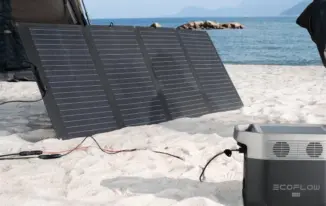Key Takeaways
- Gas line maintenance is crucial for home safety.
- Recognizing signs of gas line issues can prevent hazardous situations.
- Regular inspections and professional assistance are critical components of gas line care.

Introduction to Gas Line Safety
Ensuring the safety of your gas lines should be a top priority for every homeowner. Gas lines supply fuel to your home’s appliances, enabling everything from cooking to heating. However, any issues with them can lead to dangerous situations, including gas leaks and potential explosions. Understanding when you need gas line repair in San Diego or elsewhere is critical in maintaining a safe environment. This article provides tips and insights to help you maintain your gas lines effectively and prevent potential hazards. By following these guidelines, you’ll be better prepared to protect not only your property but also the well-being of your family.
Recognizing Signs of Gas Line Issues
Knowing the early warning indicators of gas line troubles can help you avoid more severe problems. An odd scent frequently referred to as a “rotten egg” odor and added to natural gas to aid in leak detection is one of the main warning signs. Hissing or whistling sounds close to the gas lines, which suggest that gas is escaping through a tiny hole, are another clue. Since gas leaks can deprive plants of oxygen, dead or dying vegetation near the gas line location may also be a warning indication. Furthermore, a leak can cause an inexplicable spike in your gas bill that doesn’t correspond with an increase in usage. Contacting a specialist immediately for a complete inspection if you see any of these symptoms is critical.
Essential Maintenance Practices
Gas lines require regular maintenance. It entails arranging yearly checks with certified experts to find possible problems before they become dangerous. Ensure all gas appliances are fitted and maintained correctly to avoid leaks and inefficiencies. Clear clutter and obstacles from the area surrounding gas lines to facilitate maintenance and emergency repairs. Put in carbon monoxide detectors to be warned of potentially harmful pollutants. By following these maintenance procedures, gas appliances’ lifespan can be increased, and the likelihood of gas line problems will decrease considerably.
Understanding the Importance of Professional Assistance
While some maintenance activities can be completed by yourself, professional experience is required for many parts of gas line maintenance. For example, certified experts should only carry out gas line replacements or repairs to ensure safety and adherence to regional laws. Gas line mishandling can result in severe mishaps, which emphasizes the need for expert assistance. Licensed experts are equipped with the suitable instruments and know-how to identify and fix problems with gas lines safely. Trying do-it-yourself repairs can make the issue worse and put you in danger.
Preventive Measures for Gas Line Safety
In addition to regular maintenance, taking preventive measures can significantly enhance the safety of your gas lines. Some tips include:
- Never attempt DIY gas line repairs. Always hire a licensed professional for any work involving gas lines.
- Be cautious when digging in your yard. Contact local utility services to mark gas lines before starting excavation work.
- Educate your family about gas line safety and emergency procedures. Ensure everyone knows how to turn off the gas supply and respond in case of a gas leak.
Adhering to these preventive measures can dramatically reduce the risk of gas line issues. Prevention is always better than cure; taking these steps can save you considerable trouble and expense.
Emergency Procedures in Case of a Gas Leak
Acting quickly to prevent injuries and property damage is crucial in case of a gas leak. Evacuate everyone immediately, avoid using electrical appliances or open flames, turn off the gas supply if safe, locate the main gas valve, and contact your gas company or emergency services for further instructions and a professional to address the leak. This will help prevent explosions and ensure safety.
When to Replace Your Gas Lines
Over time, gas lines may deteriorate and require replacement. Aged gas lines are more susceptible to leaks and failures. Indicators that it might be time to consider replacing your gas lines include:
- Frequent gas leaks. Recurring issues may indicate that the gas lines are beyond repair and need replacement.
- Old or outdated piping materials. Materials such as cast iron and steel are prone to rust and corrosion.
- Visible wear and corrosion on gas lines. Physical damage to the lines can compromise their integrity and lead to leaks.
Always consult a professional to determine the best action for replacing gas lines. A professional evaluation can provide a clear understanding of the condition of your gas lines and the necessary steps to ensure their safety.
Final Thoughts on Gas Line Safety
For your home to remain safe and functional, you must maintain the integrity of your gas lines. By being informed, watchful, and proactive, you can guarantee that your house is protected from potential gas line-related threats. Gas line safety requires routine inspections, expert help, and preventive measures. Always remember that if in doubt, get professional help to handle any gas line difficulties. It is vital to your security and tranquility of mind.



